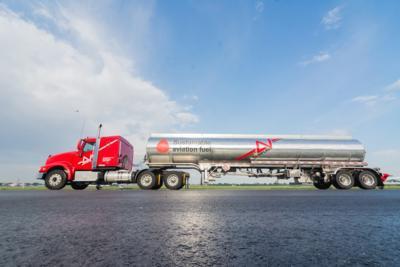Scale Will Prove Very Difficult to Achieve in a 100% Sustainable Industry
Ryanair founder Micheal O'Leary got a focus piece in the papers recently, putting together a melange of quotes and firebrand moments recapping the chief's polarizing statements in recent years.

While much of it is the usual pokery of "shocking" content (jokes about disruptive environmental activists being best punished with firing squads), his frank statements about the nature of Sustainable Aviation Fuels are worth noting.
O'Leary is unimpressed by concepts showing a global aviation industry thriving solely off of SAF, finding them fanciful given the necessary quantities. Instead, he wants more realistic approaches to hit net zero goals, like reductions in ATC delays and inefficient routings. Those two things are good for 20 to 25% fuel reductions fleetwide, in his estimation.
“They’re a wheeze," said O'Leary. "Unless governments get in behind the production and sourcing of sustainable aviation fuels – and they’re only going to come from, ultimately, the oil majors, the only ones who are going to make them – I don’t see where we will get the supply in the volumes we need. You want everybody running around collecting fucking cooking oil? There isn’t enough cooking oil in the world to power more than one day’s aviation."
SAF is generally sourced from waste oils used in cooking, collected from eateries and service providers before being treated with processes that break the long carbon chains into a closer approximation of Jet A. So far, in the small quantities of SAF made, it's been easy to find enough organic hydrocarbons, vegetable oils, fats, and fatty acids - but a widespread collection process remains a long way off. Collection points, trucking systems to bring smaller nodes into centralized storage facilities, then the transit to refineries all remains to be borne out in reality. Public awareness of waste oil collection remains extremely low, aside from some cute pilot projects in airports looking to recapture some in the public eye. With somewhere around 217 million metric tons of vegetable oils produced each year, about 144 million tons fewer than fuels produced (using some very loose napkin-back math). That's not accounting for the loss from vegetable oil use or disparity between waste oil in and SAF out,
either. If SAF is to be the sole source of aviation fuels in the future, there's much work to be done at a scale most consumers can hardly fathom.
Despite his reticence towards the overall concept, O'Leary is a businessman at heart, and knows the best way to keep the government buttstock from his company's back is to enthusiastically embrace the cause du jour, even if he has personal misgivings about its potential. Ryanai inked deals to get almost 10% of its fuel in SAF by 2030. O'Leary says it's up in the air though, adding "we have no idea that they’ll be able to make those kinds of volumes.”
So what's the realistic method to tackle carbon emissions? Aside from low-hanging fruit like ATC delays and routing, he thinks the automotive world will have to pull a lot of weight. “If you can move that to an electric fleet," said O'Leary, "It’s the only way we’re going to get anywhere close to net zero by 2050.”
 ANN's Daily Aero-Term (05.07.25): Terminal Radar Service Area
ANN's Daily Aero-Term (05.07.25): Terminal Radar Service Area ANN's Daily Aero-Linx (05.07.25)
ANN's Daily Aero-Linx (05.07.25) Classic Aero-TV: Anousheh Ansari -- The Woman Behind The Prize
Classic Aero-TV: Anousheh Ansari -- The Woman Behind The Prize NTSB Prelim: Bell 206B
NTSB Prelim: Bell 206B Airborne-NextGen 05.06.25: AF Uncrewed Fighters, Drones v Planes, Joby Crew Test
Airborne-NextGen 05.06.25: AF Uncrewed Fighters, Drones v Planes, Joby Crew Test



